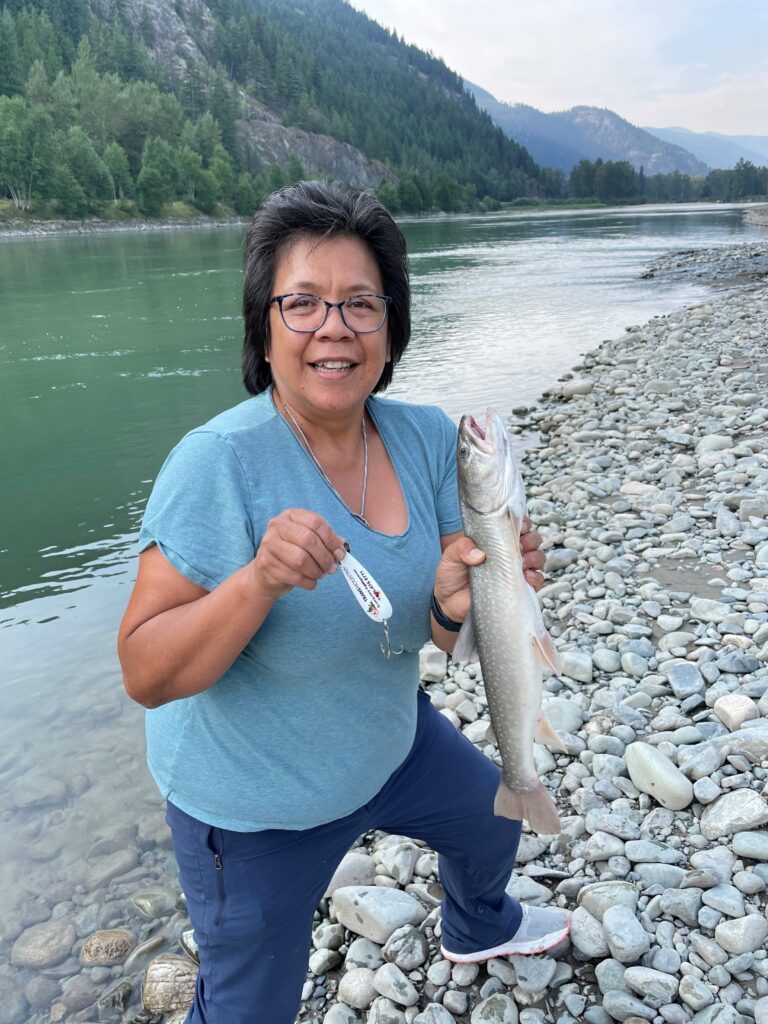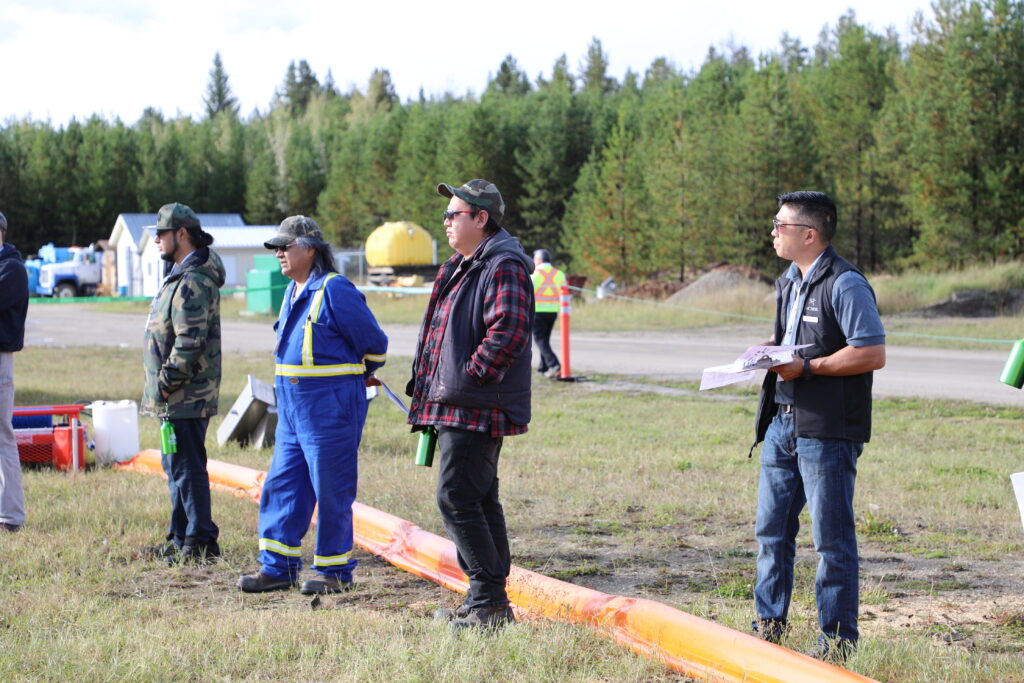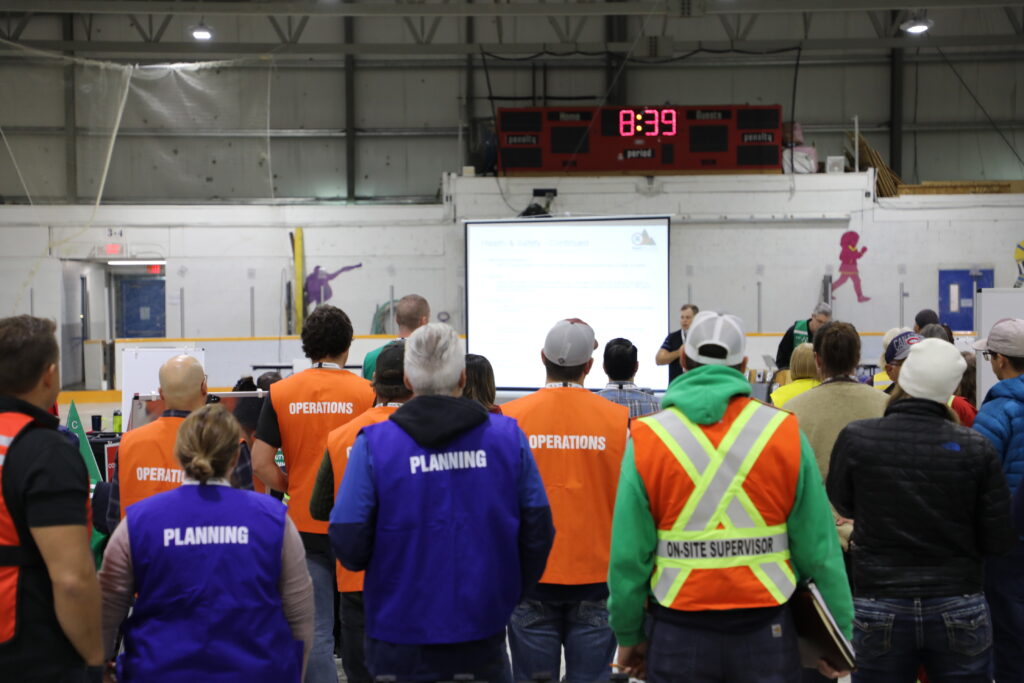Emergency Management
The IAMC-TMX has identified emergency management as one of their key priorities.
Since 2018 the IAMC-TMX has identified the importance of emergency management and response in Indigenous communities by bringing Indigenous leaders and technical experts together to implement two pilot projects and work towards common priorities as the group evolved into the Emergency Management Subcommittee (EMSC). EMSC priorities are to:
- Identify opportunities for greater Indigenous inclusion in Emergency Management
- Improve Indigenous communities’ emergency preparedness with an all hazards approach
- Inform the IAMC-TMX on issues related to Emergency Management
- Inform policy development.

Highlights 2020 - 2021
- Implemented an Emergency Management Community Capacity Survey between October – November 2020
- Assessed survey results in 2021 that assisted in informing the EMSC 2021-22 work plan and budget – key priorities and activities.
- Developed a Terms of Reference and became a full Subcommittee in 2021
- Hosted three Emergency Management Regional Events (AB, BC Interior, BC Coastal communities)
- Identified key activities and priorities for emergency management training, workshops and skill development planned sessions.
- Attended full-scale emergency response exercise focused on responding to a spill in the Kamloops region during winter conditions in February 2020
- Participated in Geographic Response Plan fieldwork with Trans Mountain to provide local subject matter expertise and cultural perspectives to assist with response planning
- Engaging with the Transportation Safety Board on Investigations. Specifically in 2020, the IAMC-TMX participated as an Expert Reviewer following Sumas spill incident.
- Over 106 participants in the EMSC session during the 2021 Line Wide Gathering (virtual)
- Funded two multi-year community projects in 2019-2020 related to emergency management totaling $510,737
Completed Pilot Projects
“Anyone that has been with us here, to the territory, need to understand when there is any incident here we have good leaders and keepers.”
— IAMC Member discussing the full-scale exercise
Increasing Participation in Incident Command Systems (ICS)
The goal of this Pilot Project was to increase Indigenous communities’ involvement in Incident Command System (ICS) through participation in a full-scale Emergency Response exercise held in September 2019 on Simpcw Territory. The pilot project involved two Incident Command System training sessions (ICS 100) and one Environment Unit training session. Topics of discussion included basic principles and features of ICS, roles and functions, facilities, personnel accountability, and when to use ICS. For those who did attend, the ICS training was well received. 35% of invited communities participated in the full-scale exercise – a 5% increase from typical attendance.
Regional Spills Planning and Preparedness Initiative in Stó:lō Territory
The purpose of this project was to build Indigenous capacity across Stó:lō territory in emergency management, specifically on spills response. The 2-day workshop in January 2020 was attended by representatives of several communities, local fire and police forces, and several organizations including First Nations Emergency Services Society, Emergency Management BC, Indigenous Services Canada, and Trans Mountain. Learning sessions included an overview of the emergency management landscape in the area including ways communities could access funding for EM projects and table top exercises to improve EM response knowledge.
Ongoing Projects
- Call for Proposals – Emergency Management Stream 2021
- 40 Submitted Community Funding Proposals - $1,591,579 in applications.
- Seven Continuous Funding Proposals submitted - +$1,278,579 in applications.
- Engagement with the Marine Shipping Subcommittee
- Implementation of the EMSC Work Plan priorities and events
- Regional Engagement sessions completed;
- Training and workshops for Emergency Management skills development and capacity building in planning.
- Process and Procedures workshops with Trans Mountain, Canada Energy Regulator and other Provincial/Federal regulators in planning
Tina Donald
Chair of the Emergency Management Working Group

Weytk
Tina Donald is from the community of Chu Chua, or Simpcw First Nation. In addition to raising her family there, she has spent 22 years serving her community as a council member.
Since 1994, Tina has been a First Responder for her community. She has been involved in Emergency Management in Simpcw since October 1997. After 2003 fires, she took on a lead role with Simpcw Emergency Management Team, coordinated emergency management plan and operations centre training for staff. During the 2017 fire, taking on Incident Commander role.
Tina’s experience in fisheries has led her to manage the Dunn Creek Hatchery and coordinate stewardship and education programs for school groups K-12th grade. She also coordinates youth fishing activities in Simpcw territory.
Tina represents the Simpcw Council on a variety of board and committee positions and organizes many other community events. She brings her wealth of experience in emergency management, fisheries/wildlife and education to her role as Chair of the Emergency Management Subcommittee.


